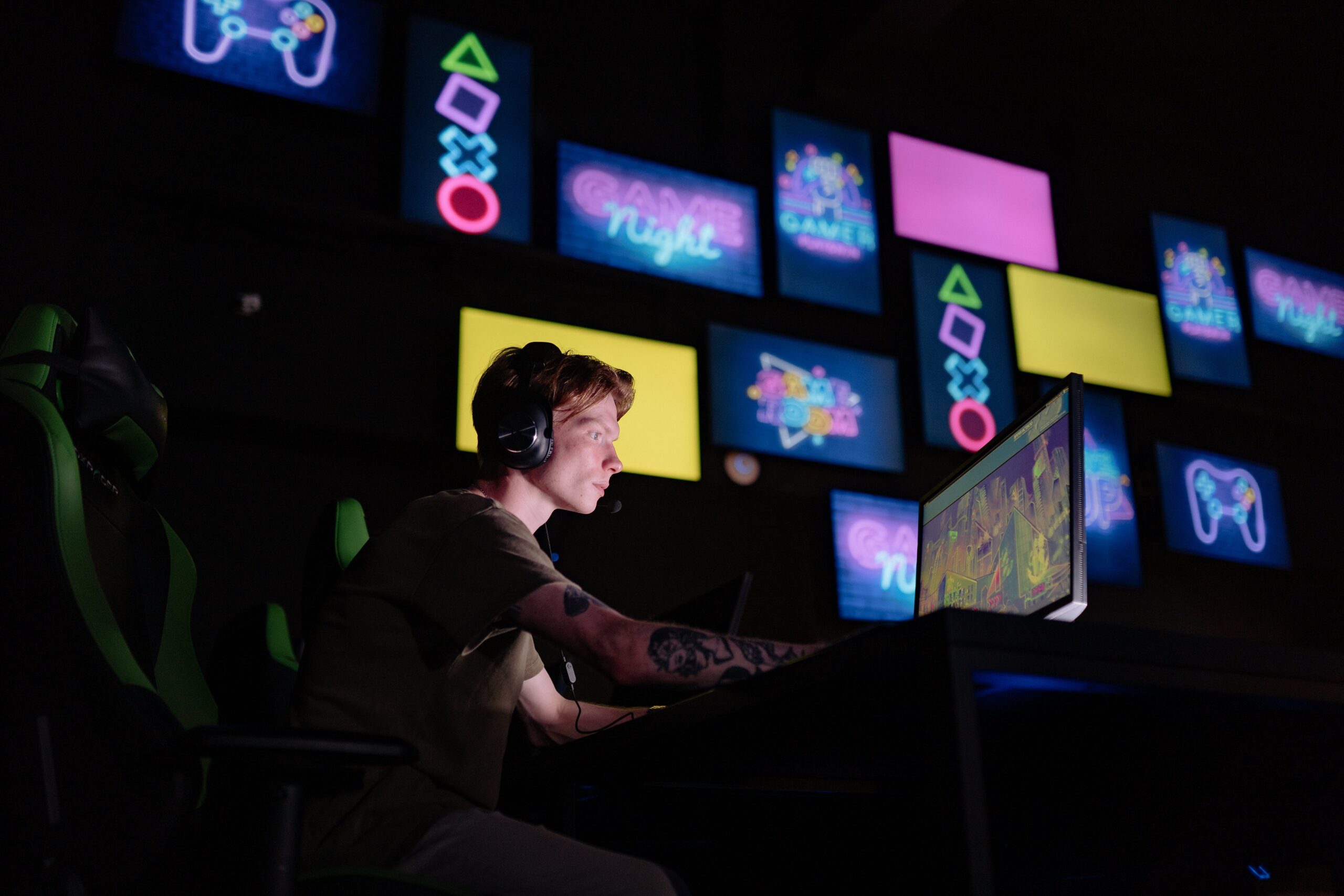Professional gaming, also known as esports, refers to competitive video gaming played at a highly skilled and organized level, involving professional players and teams competing in various video game titles.
Evolution of Professional Gaming
Professional gaming has evolved significantly from casual competitions to organized leagues and tournaments, gaining immense popularity globally.
Major Titles in Professional Gaming
Games like “League of Legends,” “Dota 2,” “Counter-Strike: Global Offensive (CS:GO),” “Fortnite,” and “Valorant” stand as prominent titles in the professional gaming sphere.
Impactful Games in the Industry
These games have not only shaped the competitive gaming scene but have also contributed to the growth and development of the esports industry.
Overview of Esports Tournaments
Esports tournaments are organized events where professional gamers compete against each other for significant prizes and prestige.
Notable Esports Events and Leagues
Events like The International (Dota 2), League of Legends World Championship, and ESL Pro League are among the most prestigious tournaments in esports.
Professional Gamers Profile
Professional gamers dedicate extensive time and effort honing their skills, employing strategic gameplay and teamwork to excel in their respective games.
Recognized Gaming Organizations
Teams and organizations like Team Liquid, Fnatic, Cloud9, and G2 Esports are known for their competitive prowess and success across multiple esports titles.
Gaming Hardware and Accessories
gaming hardware and accessories are integral components for gamers aiming to elevate their gaming experience. Here are some key aspects and details about various cutting-edge gaming equipment:
- High-Performance PCs: Gaming PCs are designed to handle resource-intensive games with ease. They often feature powerful processors (like Intel Core i9 or AMD Ryzen), high-end graphics cards (such as NVIDIA GeForce RTX or AMD Radeon RX), ample RAM (16GB or more), and fast SSD storage. Customizability is a significant advantage, allowing gamers to tailor their PCs to suit their specific needs.
- Gaming Mice: These mice are optimized for precision and responsiveness. They often come with adjustable DPI (dots per inch) settings, programmable buttons, ergonomic designs, and customizable RGB lighting. The high DPI allows for smoother and more accurate cursor movement, essential in fast-paced gaming genres like first-person shooters.
- Mechanical Keyboards: These keyboards utilize mechanical switches beneath each key, providing tactile feedback and quicker response times compared to traditional membrane keyboards. Gamers often prefer them for their durability, customizable keycaps, and various switch types catering to different preferences (e.g., Cherry MX, Razer switches, etc.).
- Professional-Grade Headsets: Gaming headsets offer immersive audio, crucial for spatial awareness and communicating with teammates. They often feature surround sound, noise cancellation, and high-quality microphones. Wireless options provide freedom of movement, while wired headsets tend to offer lower latency.
- Gaming Monitors: High refresh rates (144Hz, 240Hz, or higher), low response times, and resolutions such as 1080p, 1440p, or 4K are crucial aspects of gaming monitors. Adaptive sync technologies like G-Sync or FreeSync help reduce screen tearing and stuttering, providing smoother gameplay.
- Gaming Chairs: Ergonomic chairs designed for extended gaming sessions help maintain proper posture and comfort. They often come with lumbar support, adjustable armrests, and tilt mechanisms, reducing the risk of strain or discomfort during prolonged use.
- Streaming Equipment: For gamers who stream, additional hardware like capture cards, webcams, green screens, and professional microphones are essential for producing high-quality content.
- Accessories: Various other accessories such as mousepads optimized for gaming, controller grips, extended cables, and cooling solutions like aftermarket CPU coolers or additional case fans can also contribute to enhancing a gaming setup.
Investing in high-quality gaming equipment tailored to individual preferences and gaming styles can significantly impact a player’s comfort, performance, and overall gaming experience.
Technological Advancements in Gaming
Technological innovations, including advancements in graphics, VR (Virtual Reality), and game streaming platforms, continue to revolutionize the gaming experience.
Financial Aspects of Professional Gaming
The professional gaming industry generates revenue through sponsorships, advertising, media rights, ticket sales, and merchandise, contributing significantly to the economy.
Revenue Streams in the Industry
Sponsorship deals, partnerships with brands, broadcasting rights, and in-game purchases contribute to the multi-billion-dollar revenue of the professional gaming industry.
Community Engagement and Fans
The vibrant gaming community actively engages through online forums, streaming platforms, fan events, and social media, contributing to the growth of esports.
Impact on Pop Culture and Society
Professional gaming has a substantial influence on pop culture, shaping fashion, entertainment, and mainstream media trends, while also challenging traditional notions of sports.
Challenges Faced by Professional Gamers
Challenges include intense competition, maintaining mental and physical well-being, and dealing with the demanding nature of a professional gaming career.
Future Trends and Predictions in the Industry
The future of professional gaming holds promises of continued growth, technological advancements, and expansion into new markets, cementing its status as a prominent entertainment sector.
FAQs
1. What is professional gaming?
Professional gaming, also known as esports, involves competitive video gaming played at a highly skilled and organized level, featuring professional players and teams.
2. Which games are popular in professional gaming?
Games like “League of Legends,” “Dota 2,” “Counter-Strike: Global Offensive (CS:GO),” “Fortnite,” and “Valorant” are among the popular titles in professional gaming.
3. How do professional gamers earn money?
Professional gamers earn money through sponsorships, prize winnings, streaming revenues, endorsements, and participating in leagues and tournaments.
4. What challenges do professional gamers face?
Challenges include intense competition, maintaining peak performance, managing physical and mental health, and the demanding nature of a professional gaming career.
5. How influential is professional gaming in society?
Professional gaming has a significant impact on pop culture, influencing fashion, entertainment, and media trends, and challenging traditional sports.

Leave a Reply